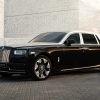
Abdul Karim, 55, makes a pot of tea outside the breeze-block hut in which he lives on the construction site he guards in Raqqa, Syria
Credit: Sam Tarling for The Telegraph
After a decade of war that fractured his country and destroyed his city, Omar Sarran still thinks Raqqa is the best place to live in Syria.
“There is some kind of freedom, some institutions, safety, everything is available, though of course we are affected by the economic situation,” he told The Telegraph during a recent visit to the city.
More than three years after the battle to drive Islamic State militants from the city they declared as their capital, thousands of buildings are in ruins, jobs are scarce and bodies are still being exhumed from mass graves.
But Mr Sarran, who is 36 and an English teacher, is an optimist.
“Raqqa today is the model, I mean it,” he said. “Buildings can be rebuilt, what we are working on now is rebuilding the people, what ISIS destroyed was their souls.”
A once undistinguished provincial capital, Raqqa’s fortunes reflect the broader trajectory of the Syrian civil war, which marked a grim 10-year anniversary this week. From the giddy optimism of the uprising against President Bashar al-Assad to a brutal civil war that has imposed a horrific cost to civilian life and infrastructure, Raqqa has seen it all.
No-one predicted Raqqa, situated in an agricultural region on the Euphrates river far from the cosmopolitan centres of Aleppo and Damascus, would be the first provincial capital to fall into rebel hands when protests began in March 2011.
Eight months later, Raqqa’s loyalty was presumed when al-Assad received pledges of allegiances in person from the province’s tribal sheikhs. But those allegiances proved fickle and Raqqa fell in a matter of days in March 2013 to a motley collection of Free Syrian Army and Islamist militias.
“Ten years ago they thought Raqqa would be the last city to rise up,” said Mohammed Nour Al-Zaib, pictured below, a sheikh who is today the co-chair of the Raqqa Civil Council. “The government was not interested in Raqqa before, it was a sleepy place, even though the region has oil and was the breadbasket of Syria.”

Mohamad Noor Al Zaib, co-chair of Raqqa Civil Council, is photographed at his office in Raqqa, Syria
Credit: Sam Tarling for The Telegraph

Cigarette seller Jamal Abu Habib, 51, smokes by a fire at Al Naim Roundabout in Raqqa, Syria, on March 11, 2021
Credit: Sam Tarling for The Telegraph
But after rising up against President Assad, Raqqa would demonstrate how a disparate group of activists and rebels would struggle to cooperate to rule. It was this power vacuum which allowed the Islamic State group to seize control of Raqqa in early 2014.
The rule of IS in Raqqa epitomised the terror group’s brutality, with public executions, forced disappearances and widespread torture. “ISIS were medieval, it was like the dark ages,” said Mr Sarran, the teacher.
Mr Sarran hailed the Syrian Democratic Forces who recaptured the city in 2017 as “saviours”, even though the battle involved Raqqa’s near total destruction. The international coalition dropped about 10,000 bombs on the city, killing 1,600 civilians according to some estimates.
The rebuild starts from scratch
Since then the rebuild has been slow, acknowledges Mr Zaib, who says the Raqqa Civil Council has a tiny budget and little international support. “The basic infrastructure of the city was destroyed, we couldn’t simply fix it, we had to start from scratch,” he said.

Children take part in a race in Raqqa, Syria, on March 13, 2021
Credit: Sam Tarling for The Telegraph
The council was established by the Syrian Kurdish authorities who now control northeast Syria. Calling themselves the self-administration, Syria’s Kurds have foregone secessionist dreams in favour of autonomy from Damascus. The self-administration has shrewdly avoided outright war with Damascus, which since 2015 has counted on Russian and Iranian support to turn the tide of the war in its favour.
Operating in this uncertain context, Mr Zaib said water mains have now been restored to 95 percent of Raqq’s neighbourhoods, while electricity is available to roughly two thirds of households. About 50 of Raqqa’s 400 schools are operating again, running in morning and afternoon shifts to accommodate as many students as possible.
A nightclub serving alcohol has reopened and the council is restoring an Armenian church. Rubbish trucks collect refuse, though much is also dumped by the Euphrates where it is picked over by displaced Syrians living in hovels patched together from old blankets and tarpaulins.
“Given time we can rebuild Raqqa from the ruins to be better than Damascus in services and security,” Mr Zaib said, who argues that only his city still offers the potential to fulfil the aspirations of those who rose up against President Assad a decade ago. (Idlib meanwhile is controlled by an Islamist group that was once affiliated to Al Qaeda’s local Syrian franchise).
Today the complaints of Raqqa’s citizenry are milder compared with the terror they lived in under IS and the political oppression of the Assad regime. Rather than public beheadings and floggings for smoking, people complain of conscription and corruption, a growing drug problem and a lack of development.

Singer Yasser Al Fadouni, 23, serenades patrons at a night club in Raqqa, Syria on March 11, 2021
Credit: Sam Tarling for The Telegraph

Men work out at a gym in Rashid Stadium, Raqqa, Syria, on March 11, 2021
Credit: Sam Tarling for The Telegraph
“This is the situation here: if someone sees a glass of tea in the street they will run and take it,” said Yaser Al-Fardooni, a singer who performs at weddings and the reopened nightclub.
This month the Syrian pound reached a new blackmarket low of 4540 to the dollar, having traded at 47 before the war. In January, the central bank began printing 5,000 pound notes, but even so exchange houses offer customers plastic bags to carry their currency. Food prices have more than doubled over the past year
“It’s true that we are making a living but nothing is available if you don’t have connections,” said Mr Fardooni, who at 23 is wanted for a year of service pulling checkpoint duty despite having fought for two years with the Syrian Democratic Forces (SDF) to free his city.
Restoring pride to a city
At Raqqa Stadium, the facility’s manager has a simple demand. “I need training mats,” said Mohammed Saleh.
“We’re training 1,000 boys on the ground in martial arts and boxing and we have no mats,” said Mr Saleh, who at 40 looks 25 and smokes and talks incessantly.
The home ground for Al-Shebab Football team, under IS the stadium was converted into a prison. In 2016 the militants executed six Al-Shebab players after accusing them of spying for the Kurds.
Nowadays Mr Saleh is preoccupied with finding funds to renovate the facilities, after selling his house to buy equipment to reopen the stadium’s gymnasium.
“I care about the gym more than money. We need victories and heroes more,” he said of his plan to restore Raqqa’s pride through sporting prowess.
Raqqa’s relative isolation has bred a parochial pride and a unique identity as a relatively liberal city in a conserative corner of Syria. The city’s ability to bend with the prevailing wind suggests it stands better odds of shrugging off extremism than elsewhere, argues Maria Al-Ojeili.
A local activist from an old Raqqa family of writers and politicians, Mrs Ojeili insists extremism is alien to the city. “There is no ideology in Raqqa,” she said.
Mrs Ojeili, who does not wear a veil, says she prefers to remain in Raqqa even while her husband and children live in an area under government control. “In Latakia I have my business, a villa, cars, a luxurious life, but I cannot talk freely,” she said.
For Mrs Ojeili, who is an outspoken critic of all Syrian factions, this is an issue.

Maria Al-Ojeili, 55, photographed in her home in Raqqa, Syria
Credit: Sam Tarling for The Telegraph
In regime areas, “if someone writes a report on you, you’ll be hidden behind the clouds,” she said. Forced disappearances are estimated to have resulted in 12,000 deaths in cusctody from torture and mistreatment since the war began.
“For freedom and the ability to talk, the SDF are the best,” she said of the Kurdish-led forces in control of Raqqa.
But security remains poor she said, with IS sleeper cells continuing to extort wealthy families. And hovering over all is the fear that while today’s situation is manageable, things could deteriorate tomorrow, whether from a return of the Syrian regime, a resurgence of IS, or a new as yet unforeseen terror. “Tomorrow is unknown for us,” she said.
But Mrs Al Ojeili takes a long view. “Raqqa has been invaded many times since the empire of Babylon but they always leave eventually, while we stay,” she said.
Raqqa will be rebuilt again, she said, as it was after the Persians razed it in the sixth century and again after the Mongols destroyed it in the 13th century.
“We own this city. We’ll stay here. We’ll die for it and we’ll fight for it,” she said. “Raqqa deserves it.”























































Свежие комментарии